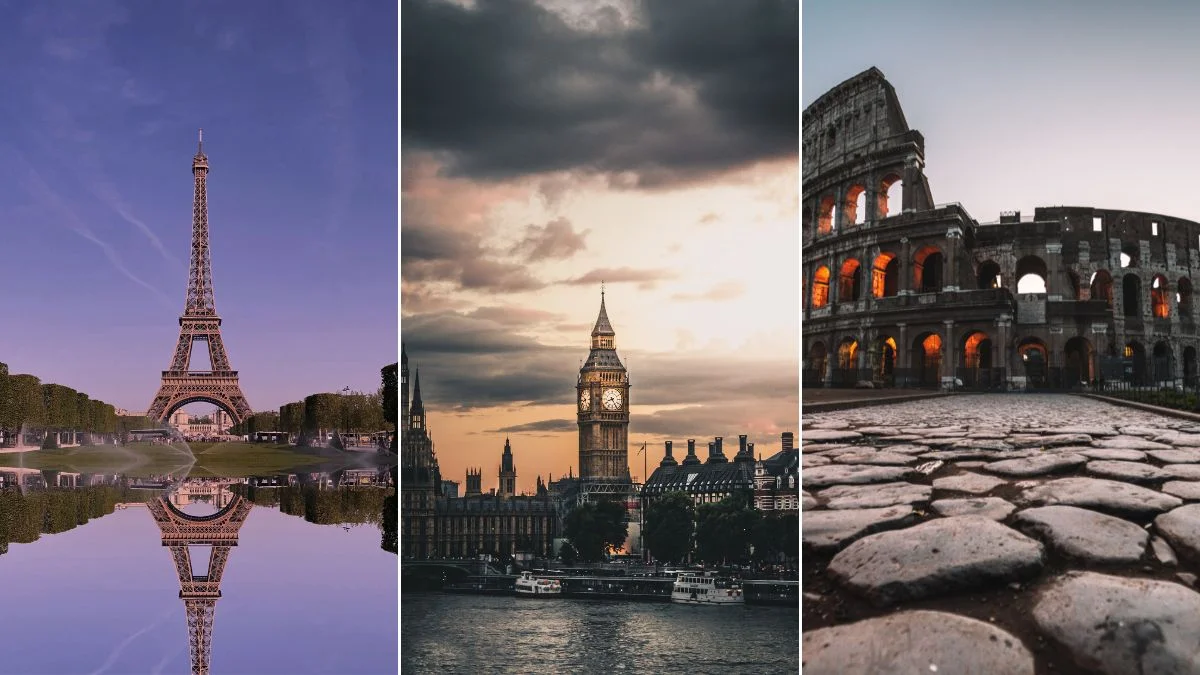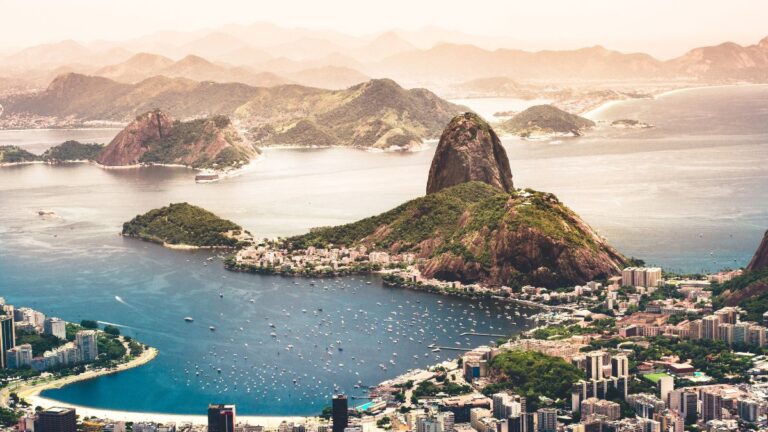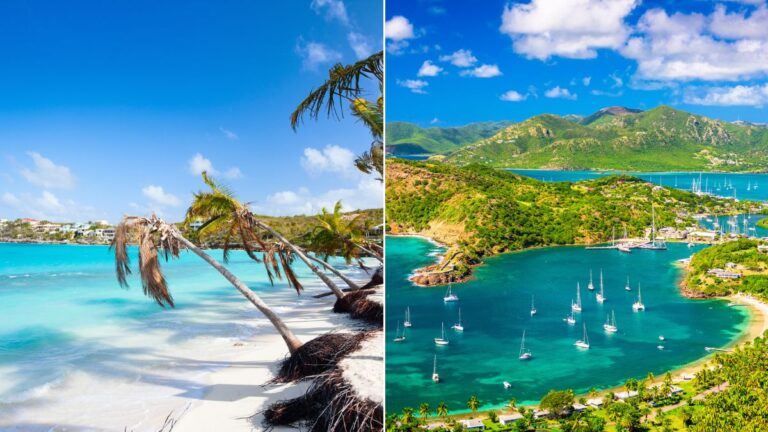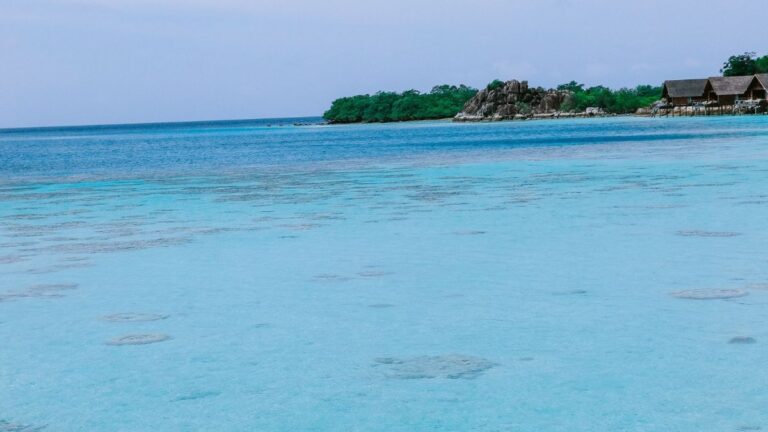50 Facts About France You Need to Know Before Traveling There

As participants in Amazon Associates and other programs, we earn from qualifying purchases. This comes at no additional cost to you. For more details, see our Affiliate Disclosure.
France, a country synonymous with art, fashion, gastronomy, and history, offers an allure that attracts millions of visitors each year. Beyond the iconic Eiffel Tower and the romantic cobblestone streets of Paris lies a nation rich in diversity, tradition, and unexpected wonders. Whether you’re planning to sip on fine wine in Bordeaux, gaze at the lavender fields of Provence, or explore the rugged coasts of Brittany, knowing a few key facts can transform your journey from a mere vacation to an unforgettable adventure. This article unveils 50 fascinating facts about France that will enrich your understanding and appreciation of this remarkable country, ensuring your travel experience is as rewarding as it is memorable. Prepare to dive into a world where history, culture, and natural beauty converge in the most exquisite way possible.
1. The French Republic: A Rich History
France’s journey through time is a tapestry woven with the threads of revolution, enlightenment, and profound cultural evolution. The French Republic, born out of the ashes of monarchy and revolution at the end of the 18th century, stands today as a beacon of democratic ideals and human rights. Its history is punctuated by the pivotal moments of the French Revolution, the Napoleonic era, and the waves of republicanism that shaped modern Europe. This rich historical legacy is palpable in every corner of the country, from the grand boulevards of Paris to the peaceful villages of the countryside.
2. Paris: The City of Light
Paris, often hailed as the “City of Light,” is not just the capital of France but a symbol of culture, beauty, and romance that resonates worldwide. Its nickname, derived from its role as a center of education and ideas during the Age of Enlightenment, today also reflects the city’s famed illumination, from the glittering Eiffel Tower to the softly lit cobblestone lanes. Paris captivates with its unparalleled museums, iconic landmarks, bustling cafés, and an atmosphere that blends deep historical roots with a constantly evolving contemporary scene.
3. The Eiffel Tower: More Than Just Steel
The Eiffel Tower, once a temporary exhibit for the 1889 World’s Fair, has ascended to become the enduring symbol of Paris and a masterpiece of iron architecture. Beyond its initial skepticism, the Tower now stands as a testament to human ingenuity and the spirit of the Industrial Age. Offering breathtaking views over the rooftops of Paris, it attracts millions of visitors each year, who come to marvel at its intricate lattice work and the romance it symbolizes.
4. French Cuisine: UNESCO’s Intangible Cultural Heritage
French cuisine, renowned for its finesse and flavor, holds the distinguished honor of being recognized as UNESCO’s Intangible Cultural Heritage. This acknowledgment celebrates not just the exquisite dishes and culinary techniques passed down through generations, but also the French way of life that cherishes slow dining, fresh ingredients, and the joy of sharing meals. From rustic breads and aged cheeses to sophisticated pastries and wines, French cuisine is a heartfelt invitation to savor life’s pleasures.
5. The French Riviera: A Glamorous Coastline
The French Riviera, or Côte d’Azur, stretches along the Mediterranean coast, famed for its azure waters, luxurious resorts, and the glamour of Cannes and Monaco. This sun-drenched coastline has long been a playground for the rich and famous, offering a mix of natural beauty, artistic heritage, and high-end leisure. It’s a world where picturesque villages perch on cliffs overlooking the sea, and cultural festivals light up the balmy nights.
6. Bordeaux: The Wine Capital
Bordeaux is synonymous with wine, boasting some of the most prestigious vineyards and châteaux in the world. This historic city is the heart of the wine region that bears its name, revered for producing exquisite reds that capture the essence of terroir. Wine enthusiasts flock here to tour the vineyards, sample unparalleled vintages, and delve into the rich history and sophisticated culture that wine has woven into the region’s fabric.
7. French Fashion: Setting Global Trends
French fashion has long been at the forefront of global trends, with Paris hailed as the fashion capital of the world. The birthplace of haute couture, France has fostered some of the most iconic designers and luxury fashion houses – Chanel, Dior, and Givenchy, to name a few. French fashion is celebrated for its elegance, innovation, and the seamless blend of tradition and avant-garde, influencing the sartorial choices of individuals worldwide.
8. The Louvre: Home to the Mona Lisa
The Louvre, with its glass pyramid entrance, is not only an architectural marvel but also the world’s largest and most-visited museum. It houses an unparalleled collection of art and historical artifacts, including the enigmatic Mona Lisa, the Venus de Milo, and the Winged Victory of Samothrace. A visit to the Louvre is a journey through the breadth of human creativity and history, captured in the countless masterpieces that adorn its halls.
9. Mont Saint-Michel: An Island Commune
Mont Saint-Michel stands as a mystical silhouette off the Normandy coast, a medieval fortress and abbey perched atop a rocky islet, surrounded by tidal flats. This UNESCO World Heritage Site is a testament to medieval architecture and the enduring human spirit, drawing visitors into a world where history and legend intertwine. The winding streets and ancient structures of this island commune offer a glimpse into a past where faith and fortitude shaped the landscape.
10. The French Alps: A Skier’s Paradise
The French Alps are a haven for ski enthusiasts and nature lovers alike, offering some of the best skiing terrains in the world. With renowned resorts like Chamonix and Courchevel, the Alps cater to all levels of skiers, from beginners to experts seeking the thrill of off-piste adventures. Beyond skiing, the Alps are a spectacular destination for hiking, mountain biking, and soaking in the natural hot springs, set against a backdrop of breathtaking mountain vistas.
11. The Châteaux of the Loire Valley
The Loire Valley, known as the “Garden of France,” is adorned with more than 300 châteaux, each telling a story of luxury, power, and architectural innovation during the Renaissance. These castles, set against the backdrop of the lush, rolling landscape and the majestic Loire River, offer a fascinating glimpse into the lives of French royalty and nobility. Château de Chambord and Château de Chenonceau are standout examples, showcasing the opulence and grandeur of French heritage.
12. Lavender Fields of Provence
Provence is synonymous with the vibrant, fragrant lavender fields that bloom each summer, painting the landscape in shades of purple and blue. These iconic fields not only contribute to the region’s stunning beauty but also play a vital role in the production of lavender oil, prized for its fragrance and therapeutic properties. The sight of endless lavender under the Provençal sun is a quintessential image of France’s natural splendor.
13. Normandy’s D-Day Beaches
The beaches of Normandy are hallowed ground, where the Allied forces landed on June 6, 1944, to begin the liberation of Europe from Nazi occupation during World War II. Today, these beaches, along with the memorials, cemeteries, and museums, serve as poignant reminders of the courage and sacrifice of those who fought for freedom. A visit to Normandy’s D-Day beaches is a moving experience, offering deep reflection on the cost of peace.
14. The Cannes Film Festival
The Cannes Film Festival is one of the most prestigious and publicized film festivals in the world, drawing celebrities, filmmakers, and movie enthusiasts to the French Riviera each May. Known for its red carpet and exclusive screenings, the festival celebrates the best in international cinema, providing a platform for groundbreaking films and emerging talents. Cannes becomes a bustling hub of glamour, deal-making, and artistic expression during the festival period.
15. Versailles: A Royal Château
The Palace of Versailles is a symbol of the absolute monarchy of the Ancien Régime, reflecting the opulence and power of Louis XIV, the Sun King. This grandiose palace, with its Hall of Mirrors, lavish gardens, and intricate fountains, exemplifies the height of French baroque architecture. Versailles is not just a monument to royal extravagance but also a site of significant historical events, including the signing of the Treaty of Versailles in 1919.
16. French Cheese: Over 1,000 Varieties
France takes its cheese seriously, with over 1,000 varieties ranging from the soft and creamy Brie to the pungent Roquefort. Cheese is an integral part of French cuisine and culture, with each region boasting its own specialty. The diversity of French cheese is a testament to the country’s rich agricultural tradition and the artisanship of its cheesemakers. A tasting tour through France’s cheese is a journey of flavor, tradition, and innovation.
17. The TGV: High-Speed Train Travel
The TGV (Train à Grande Vitesse) is France’s high-speed train service, connecting major cities across the country and beyond at speeds of up to 320 km/h (200 mph). Since its inauguration in 1981, the TGV has revolutionized train travel, making it possible to traverse long distances with remarkable speed and comfort. The TGV network reflects France’s commitment to modern infrastructure and sustainable transportation solutions.
18. French Literature: A Legacy of Letters
French literature boasts a legacy that spans centuries, contributing some of the most influential writers and thinkers to the global literary landscape. From the medieval epics to the philosophical works of the Enlightenment, and the novels of the 19th and 20th centuries, French literature has explored the depths of human emotion, society, and the mind. Victor Hugo, Marcel Proust, and Simone de Beauvoir are just a few of the names that have shaped French and global thought through their works.
19. The Tour de France: A Cycling Tradition
The Tour de France is the most famous and challenging bicycle race in the world, covering over 3,500 kilometers (2,200 miles) of France’s varied terrain. Held annually in July, the race attracts the world’s best cyclists and millions of spectators along the route. The Tour de France is not just a sporting event but a national celebration that showcases the beauty and diversity of the French landscape, from mountain passes to vineyard-covered hills.
20. The French Language: The Language of Diplomacy
French is not only the language of love but also a language of international diplomacy. As one of the official languages of the United Nations, the European Union, and numerous other international organizations, French plays a key role in global governance and communication. The promotion of the French language and culture worldwide is supported by the extensive network of Alliance Française centers, emphasizing the importance of French as a language of culture, diplomacy, and international relations.
21. Brittany’s Ancient Alignments
Brittany, a region of mystical landscapes and rugged coastlines, is also home to the ancient alignments of Carnac, one of the most remarkable megalithic sites in the world. These rows of standing stones, erected thousands of years ago, stretch across the landscape, their purpose and origins shrouded in mystery. The Carnac stones invite speculation about prehistoric peoples and their astronomical knowledge, making Brittany a fascinating destination for historians and mystics alike.
22. French Perfumery: The Scent of Luxury
French perfumery, epitomized by the town of Grasse in Provence, is renowned worldwide for its craftsmanship in creating exquisite fragrances. This art, which combines tradition, luxury, and creativity, has been a significant part of French culture and economy for centuries. The meticulous selection of ingredients and the master perfumers’ skill in blending them make French perfumes synonymous with sophistication and allure, captivating people across the globe.
23. Gastronomy in Lyon: The Capital of Taste
Lyon is often hailed as the gastronomic capital of France, if not the world. Nestled at the confluence of the Rhône and Saône rivers, this city boasts a culinary tradition that is deeply intertwined with the rich produce of its surrounding regions. From traditional bouchons serving local specialties to innovative dishes by world-renowned chefs, Lyon offers a culinary experience that embodies the essence of French cuisine: a celebration of flavor, craftsmanship, and the joy of eating.
24. French Cafés: Cultural Hotspots
The French café is more than just a place to enjoy a coffee or a glass of wine; it is a cultural institution. From the bustling terraces of Paris to the quiet squares of small towns, cafés serve as communal living rooms where art, politics, and life are debated over a cup of café au lait. These establishments have played a pivotal role in the intellectual and social life of France, fostering the café culture that is emulated around the world.
25. The Beauty of the French Countryside
France’s countryside offers a picturesque tableau of natural beauty and tranquility, from the lavender fields of Provence to the vine-covered hills of Burgundy. This diverse landscape, with its quaint villages, medieval castles, and lush vineyards, encapsulates the charm of rural France. It is a testament to the country’s commitment to preserving its natural and cultural heritage, offering a retreat into a world where the pace of life slows and the beauty of nature abounds.
26. French Markets: A Feast for the Senses
A visit to a French market is an immersive experience that awakens all the senses. Markets, found in every town and city, are bustling hubs where locals and visitors alike come to sample and purchase the freshest produce, artisanal cheeses, meats, and other gourmet delights. These markets are not just places of commerce but social gatherings that reflect the importance of food and community in French culture.
27. The Influence of French Art
French art, with its rich history of innovation and influence, has played a pivotal role in shaping the global artistic landscape. From the masterpieces of the Renaissance to the revolutionary works of Impressionism and beyond, French artists have continually pushed the boundaries of creativity. Museums and galleries across France celebrate this artistic heritage, offering insight into the movements that have defined epochs and inspired generations of artists worldwide.
28. French Cinema: A Pioneer in Film
French cinema, known for its rich history and innovative storytelling, has been a significant force in the development of film as an art form. The country is credited with pioneering the motion picture and has produced some of the most influential filmmakers and iconic films in cinema history. French films, celebrated for their depth, realism, and avant-garde techniques, continue to earn acclaim at international festivals, contributing to France’s reputation as a cradle of cinematic creativity.
29. The French Educational System
The French educational system is characterized by its rigor and comprehensive curriculum, aiming to provide a well-rounded education to all. From école maternelle to higher education, the system emphasizes not only academic excellence but also the development of critical thinking and cultural awareness. France’s commitment to education is evident in its public universities and grandes écoles, which are recognized for their high standards and contributions to research and innovation.
30. Christmas Markets in Alsace
The Christmas markets in Alsace, particularly in Strasbourg, are a magical experience that draws visitors from around the world. These markets, with their origins in the Middle Ages, fill the air with the scent of mulled wine, gingerbread, and seasonal spices. The festive stalls, twinkling lights, and traditional Alsatian decorations create a wonderland that embodies the spirit of Christmas, making Alsace a must-visit destination for those seeking to experience the holiday season in an unforgettable setting.
31. The Côte d’Azur: Beyond the Beach
The Côte d’Azur, or French Riviera, is famed for its dazzling blue waters and glamorous beach resorts. But beyond its sun-soaked shores lies a region rich in art, history, and natural beauty. From the vibrant streets of Nice, filled with art and culture, to the hilltop villages of Èze and Saint-Paul de Vence, overflowing with medieval charm, the Riviera offers a depth of experiences. The legacy of artists like Picasso and Matisse, who were inspired by the Riviera’s light, adds another layer to the allure of this Mediterranean paradise.
32. French Bread and Pastries: A Culinary Art
The art of French bread and pastries is revered worldwide, epitomizing the care, precision, and tradition embedded in French culinary practices. The baguette, a symbol of French culture, alongside croissants, éclairs, and macarons, showcases the mastery of French bakers. Each region boasts its specialty, from the flaky kouign-amann of Brittany to the savory quiche Lorraine, illustrating the diversity and richness of France’s pastry and bread-making heritage.
33. Napoleon Bonaparte: A Historical Figure
Napoleon Bonaparte, one of history’s most influential figures, left an indelible mark on France and the world. Rising to prominence during the French Revolution, he became Emperor and reshaped Europe through his military campaigns. His legal reform, the Napoleonic Code, has had a lasting impact on civil law jurisdictions worldwide. The legacy of Napoleon is complex, woven into the fabric of French identity and global history, reflecting a legacy of ambition, conquest, and the quest for unity.
34. The French National Anthem: La Marseillaise
“La Marseillaise,” the national anthem of France, is a stirring call to freedom and patriotic action. Written in 1792 by Claude Joseph Rouget de Lisle during the French Revolution, it embodies the spirit of fraternity, resistance, and national pride. Its powerful melody and evocative lyrics have inspired not only the French people but also those fighting for liberty and justice worldwide, making it a symbol of universal values of democracy and human rights.
35. French Wine Regions: A Taste of Terroir
France’s wine regions offer a diverse palette of flavors, each influenced by the unique terroir of its landscape. From the robust reds of Bordeaux and the elegant whites of Burgundy to the sparkling magic of Champagne, French wines are celebrated for their quality and variety. These regions, steeped in centuries of winemaking tradition, invite connoisseurs and novices alike to explore the depth of French viticulture, where the land, climate, and human touch converge to craft wines of unparalleled character.
36. The Importance of French Philosophy
French philosophy has been at the forefront of human thought, challenging conventions and exploring the depths of existence, society, and the mind. Figures such as René Descartes, Jean-Paul Sartre, and Simone de Beauvoir have contributed profoundly to our understanding of consciousness, freedom, and feminism. The legacy of French philosophical thought continues to influence contemporary debates, underscoring the enduring relevance of questioning and reflection.
37. UNESCO World Heritage Sites in France
France is home to numerous UNESCO World Heritage Sites, each representing a unique aspect of the country’s rich cultural and natural heritage. From the prehistoric cave paintings of Lascaux to the banks of the Seine in Paris, these sites encompass the breadth of France’s historical and artistic achievements. The designation of these sites underscores the importance of preserving and celebrating human history and the beauty of the natural world.
38. The French Riviera: Celebrities and Film Stars
The French Riviera has long been a magnet for celebrities and film stars, drawn by its luxurious lifestyle and scenic beauty. Since the early 20th century, the region has been a favorite retreat for the rich and famous, offering a mix of privacy and opulence. The annual Cannes Film Festival further cements the Riviera’s status as a gathering place for the stars, where the worlds of cinema, fashion, and celebrity converge against the backdrop of the Mediterranean.
39. French Healthcare: A Model System
The French healthcare system is renowned for its efficiency, accessibility, and quality of care, often cited as one of the best in the world. Funded through a combination of government insurance and private contributions, it offers comprehensive coverage to all citizens, ensuring that healthcare is a right, not a privilege. The system’s emphasis on preventive care and patient rights sets a benchmark for public health and underscores the value placed on the well-being of the population.
40. Traditional French Festivals
France’s calendar is dotted with traditional festivals that celebrate the rich tapestry of French culture, history, and religion. From the wine harvest festivals in Bordeaux and Burgundy to the medieval Fête de la Musique on the summer solstice, these events are a vibrant expression of French identity. Each region has its unique festivals, such as the Festival of Lights in Lyon and the Carnaval de Nice, reflecting the diversity and communal spirit of the French people.
41. The French Pension System
France’s pension system is a cornerstone of its social security network, designed to provide income to individuals in their retirement years. Funded through contributions from both employers and employees, it reflects the country’s commitment to ensuring a dignified life for the elderly. The system’s complexity, with its various schemes tailored to different professions, underscores the French approach to social welfare, balancing solidarity and individual needs.
42. French Inventors and Inventions
France has been a cradle of innovation, giving the world some of its most significant inventions. From the Montgolfier brothers’ hot air balloon to Louis Pasteur’s groundbreaking work in microbiology, French inventors have expanded the horizons of science and technology. The Lumière brothers’ contributions to cinema and Nicolas Appert’s development of canning are testaments to the French spirit of innovation that continues to inspire inventors across the globe.
43. The Gothic Architecture of French Cathedrals
French Gothic architecture, with its soaring spires, flying buttresses, and intricate stained glass, represents a high point in medieval European art. Cathedrals like Notre-Dame de Paris, Chartres, and Reims are architectural marvels, reflecting the aspirations and devoutness of the age. These cathedrals are not only places of worship but also repositories of history, art, and cultural identity, standing as monuments to human creativity and spiritual quest.
44. French Overseas Territories
France’s overseas territories, spanning from the Caribbean and the Atlantic to the Indian Ocean and the Pacific, embody the country’s global reach and diversity. Places like Guadeloupe, Martinique, Réunion, and French Polynesia offer unique blends of French culture with local traditions. These territories are integral to France’s contemporary identity, contributing to its geopolitical influence and showcasing the variety of natural environments and cultures under the French flag.
45. The Impact of the French Revolution
The French Revolution, with its ideals of liberty, equality, and fraternity, fundamentally altered the course of French and world history. Its impact extended far beyond the borders of France, inspiring revolutions and movements for democracy and human rights across the globe. The Revolution’s legacy is deeply ingrained in French national identity and continues to influence political thought and action, embodying the universal struggle for justice and freedom.
46. The French Connection to the Statue of Liberty
The Statue of Liberty, a symbol of freedom and democracy, stands as a testament to the enduring friendship between France and the United States. Gifted by France to the US in 1886, the statue was designed by French sculptor Frédéric Auguste Bartholdi and built by Gustave Eiffel. This monumental gift celebrates shared values and the spirit of liberty that both nations hold dear, reinforcing the cultural and historical bonds that unite them.
47. French National Parks and Gardens
France’s national parks and gardens are sanctuaries of natural beauty and biodiversity, offering a window into the country’s commitment to environmental preservation. From the rugged peaks of the Pyrenees to the lush forests of Guiana, these protected areas safeguard diverse ecosystems. The gardens of Versailles and other historic estates, with their meticulous design and horticultural artistry, reflect a deep appreciation for nature’s aesthetics, blending human creativity with the natural landscape.
48. The French Approach to Leisure and Vacation
In France, leisure and vacation are considered essential to well-being and quality of life. The country’s generous vacation policies and the widespread practice of taking the entire month of August off reflect a cultural emphasis on rest, family, and personal enrichment. This approach fosters a balanced lifestyle, where the importance of downtime and the joy of leisure activities are cherished as vital components of a fulfilled life.
49. The Role of France in the European Union
France plays a pivotal role in the European Union, as a founding member and one of its largest economies. The country is instrumental in shaping EU policies and initiatives, promoting integration, and advancing common values of democracy, human rights, and economic cooperation. France’s commitment to the European project underscores its vision for a united and prosperous continent, capable of addressing global challenges through solidarity and shared leadership.
50. France’s Commitment to Climate Change and Sustainability
France is at the forefront of global efforts to combat climate change and promote sustainability. Hosting the landmark Paris Agreement in 2015, the country has committed to reducing greenhouse gas emissions and transitioning to renewable energy sources. Through initiatives like the “Green Tax” and investments in sustainable transport and infrastructure, France is actively working towards a greener future, demonstrating leadership in environmental stewardship and the global movement towards sustainability.






